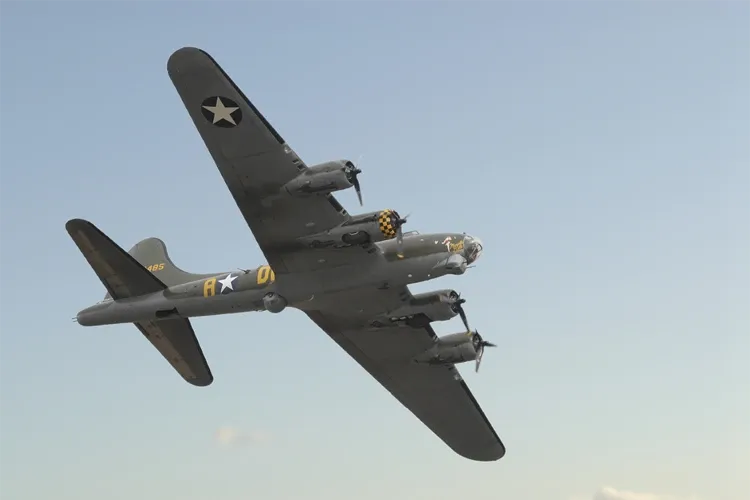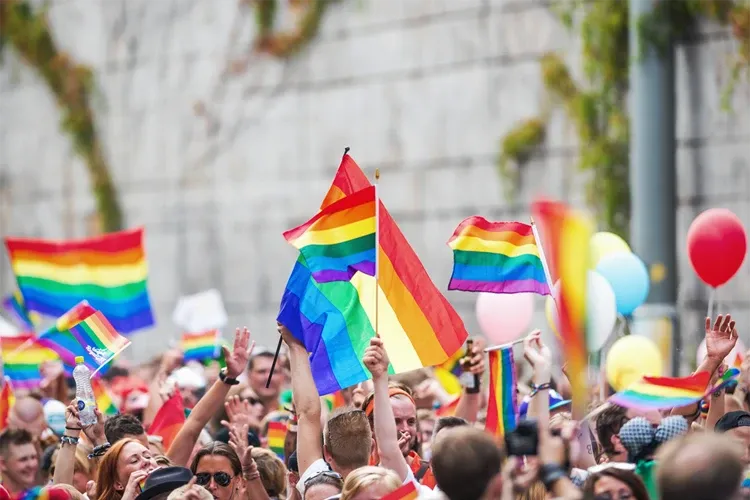This summer we remembered the eightieth anniversary of the Normandy invasion and the brave men who stormed those beaches. I could not help but think of my Uncle Charles Krieger.
Uncle Charles was a tail-gunner in a B-17 Flying Fortress. He was a war hero and a follower of Christ. I miss him all the time, and as I steadily grow older, I wish he were still around so I could ask questions. Charles was not only a war hero: he was, and will forever be, one of my heroes.
Even though B-17s, in my opinion, are one of the most incredible flying war machines ever invented, they were very dangerous to fly. A successful tour was completed at twenty-five missions, but crew members only had a one in four chance of survival. The average lifespan of a B-17 was eleven missions, so any amount beyond that was counted a miracle. An assignment with a bomber crew was basically considered a death sentence, accounting for the loss of a staggering 100,000 service members during World War II.
Uncle Charles was shot down over Dresden, Germany, on March 2, 1945. As he would say, they were not actually shot down by the Germans, but merely “ran into some flak.” Although he flew missions in multiple planes, depending on which plane was available and “flyable,” this one happened to be his fourteenth mission, three missions past the miracle mark.
B-17 serial number 43-38828 was destroyed that day, but praise God, his life was spared. Uncle Charles was able to parachute out, never to see his other crewmen again, even though nine out of twelve survived. He found himself hanging by his chute, caught in a tree, and staring down the sharp end of a pitchfork brandished by a German farmer.
He survived the last months of the European theater as a prisoner of war, eventually finding himself at Stalag VII-A in Moosburg, Germany, the largest prisoner of war camp run by the Germans, until the camp was liberated on April 29, 1945, by the Americans. Charles said that the small Bible given to him by my grandmother, his sister, kept him going during that horrific time.
The crew members who flew those suicide missions were brave and selfless, and also knew exactly why they were risking their lives. They were fighting for a cause greater than themselves.
In an interview Uncle Charles completed in 2005, he said that "freedom does cost something, which I’m sorry to say that I think our people today don’t quite understand.”
Sorrowfully, I think he was exactly right, and that was nearly twenty years ago. I do believe that most young people today have no idea what freedom really costs. There is a reason men like my uncle were called the Greatest Generation. They were willing to sacrifice their own lives in order to maintain the freedoms we have in this nation.
They also recognized that their sacrifices did not secure their freedoms, but that those freedoms were already secured by the sacrifices of prior generations. Our founding fathers were willing to lie facedown in the mud so that later generations could walk across their backs.
Even today, we have been entrusted with preserving and maintaining our freedom. I am very concerned, however, that if more brave men do not courageously step forth and defend these freedoms, we could very soon lose many of them, if not all of them.
The blessing of freedom is much like a houseplant: freedom will grow and flourish with nurture and care, but without nurture and care, freedom will wither and die.
Although my Uncle Charles was fighting to protect freedom from worldwide tyranny, he also understood that true freedom is not found in man, but in the person and work of Jesus Christ. “Truly, truly, I say to you, everyone who practices sin is a slave to sin. The slave does not remain in the house forever; the son remains forever. So if the Son sets you free, you will be free indeed” (John 8:34-36).
As Christians, we have freedom from sin because Christ has set us free. As Uncle Charles rightly recognized, freedom does have a cost. There is a price that must be paid. In this instance, the immeasurably high price for our freedom from sin was the life of the Son of God. Even as this freedom is available for those who trust in him, Jesus died for our sins to obtain that freedom. God the Father turned his back on his Son and poured out his wrath on him to pay for those sins. Our freedom was not free.
No nation can have true freedom unless that nation is founded and maintained by men who have freedom from sin, and freedom from sin is found only in Christ. President John Adams himself understood this when he said: “Our Constitution was made only for a moral and religious people. It is wholly inadequate to the government of any other.”
The law of our land was built on the foundation of biblical law and principle, and can only continue to survive if maintained by moral men with morality defined by the word of God. If we continue to allow immoral men to erode these foundations, we will lose the freedoms the Constitution was designed to protect.
In his inaugural address on January 20, 1953, less than eight years after the end of the Second World War, President Dwight D. Eisenhower said: “History does not long entrust the care of freedom to the weak or the timid.”
God, the author of history, has entrusted the care of freedom to our nation, not because we are his favored nation, but because of the legacy left by our faithful Christian forefathers rooted in the firm foundation of his word. Our founding fathers were the extreme opposite of weak and timid. They were strong and courageous. They understood that caring for freedom required selfless sacrifice, recognized that freedom was ultimately a gift from the Almighty himself, and risked everything for the cause of freedom. To be clear, these sacrifices were not made in a vacuum. They also required the support and participation of their wives and children.
Like my Uncle Charles, they understood that freedom does cost something, but freedom was so valuable to them that there was no cost they were unwilling to pay. For many men, freedom cost them everything, including their families and even their own lives.
Uncle Charles was willing to pay that price. Are you? Christian men, are you willing to plant the seed of freedom in your own life? Are you willing to nurture and care for freedom, or are you content with letting freedom wither and die?
True freedom is rooted only in Christ. Plant your seed there. Put to death weakness and timidity. Put on the freedom of Christ and let that freedom ring.




